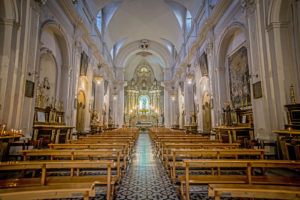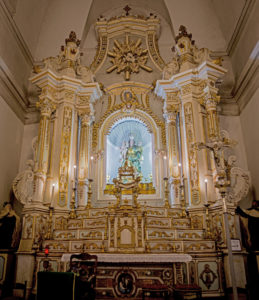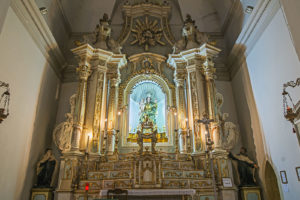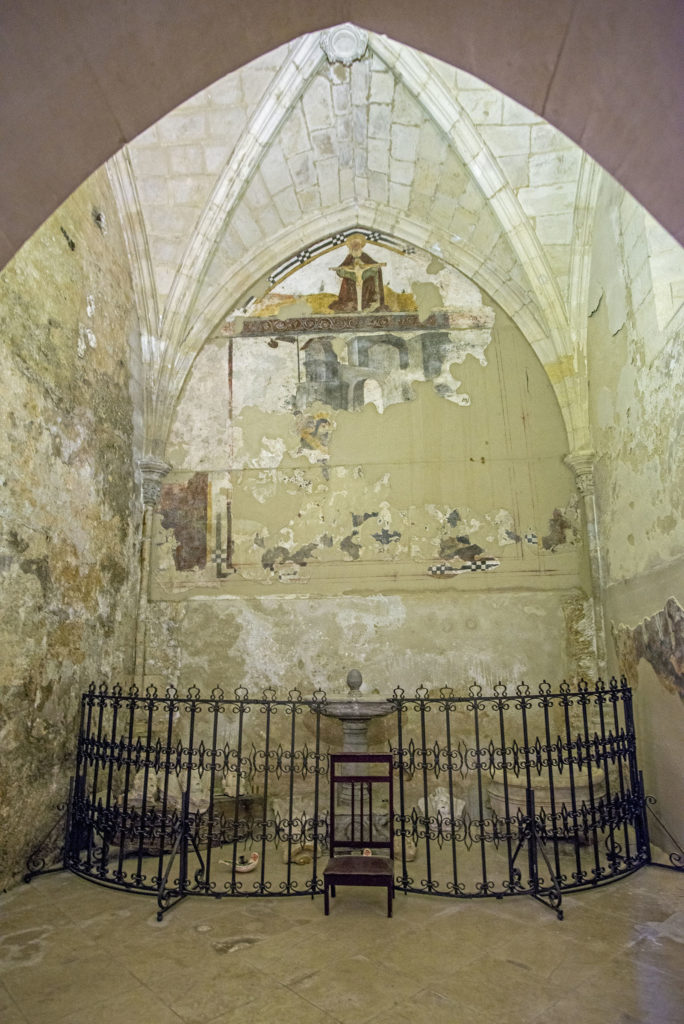 The interior of the church of Carmine features a classic Sicilian
maiolica
The interior of the church of Carmine features a classic Sicilian
maiolica
floor paired with a snow white wall with some architectural elements in relief such as
capitals
, arches, columns and the
trabeation
.
Their combination produces plays of light and shadow, achieved thanks to the rays of sunlight filtering through the windows. The altars, paintings such as the panel of St. Albert and the sculptural complex of the Annunciation add colour to and illuminate the church of Carmine. The white wooden structure behind the main altar is wonderful, embellished with golden
stuccoes
in the centre of which is the Madonna and Child.


An astonishing discovery was made a few years ago: to the right of the
apse
, hidden in the wall, was the entrance to a side chapel of medieval, late-Gothic times. Traces remain of its ancient decoration and the funerary room beneath the floor.
